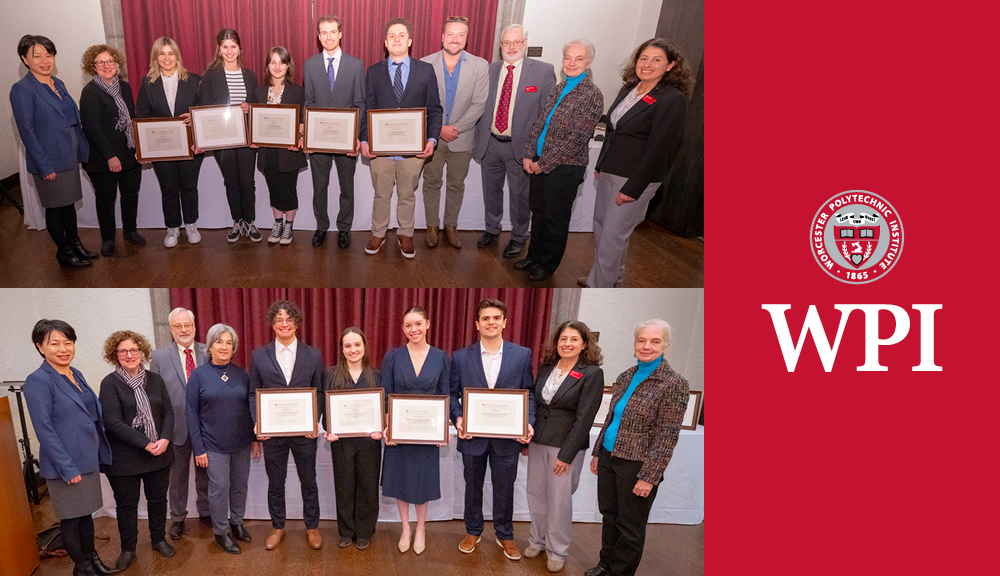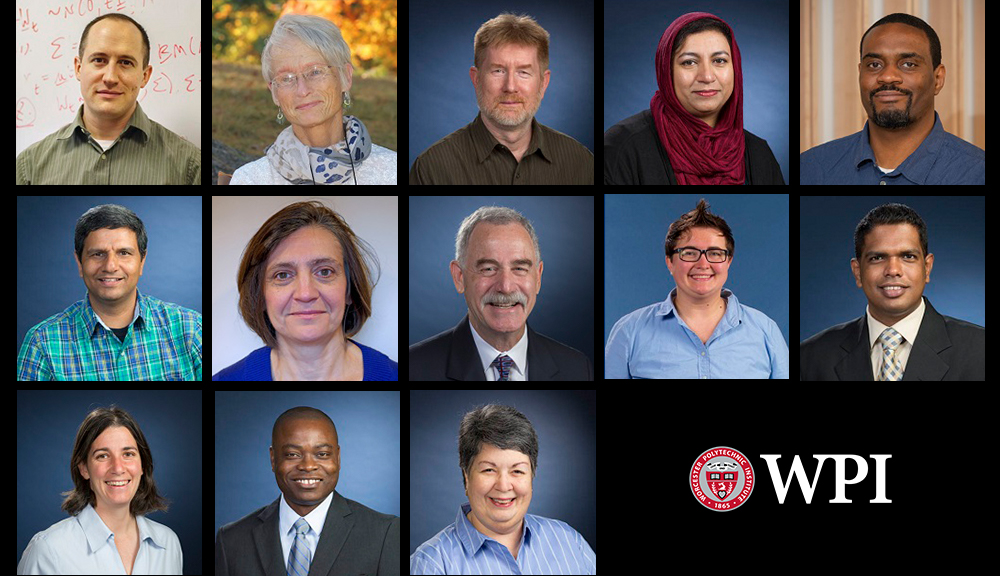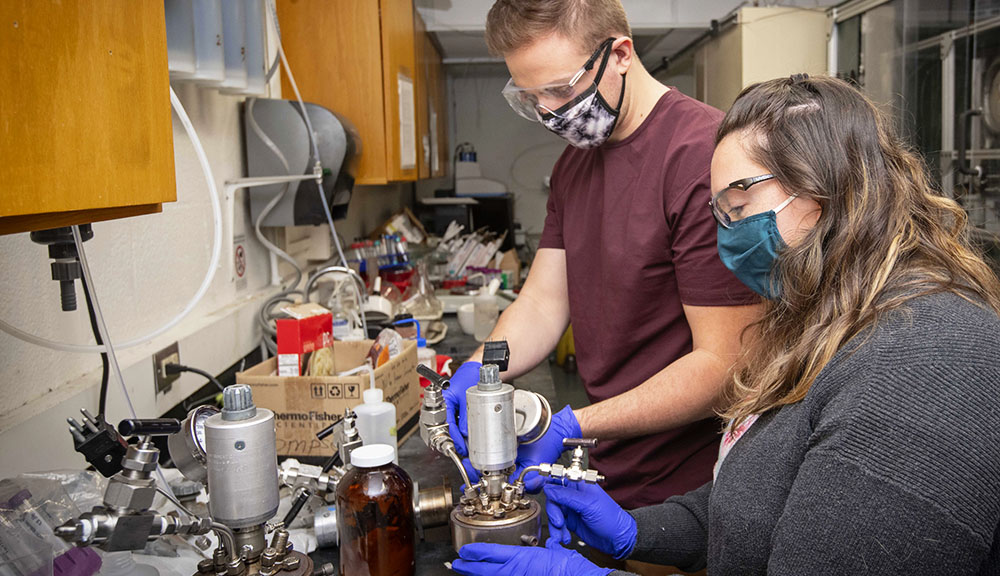Frederick Lewis Hart, a professor of civil and environmental engineering at WPI for nearly four decades and a former department head, died Dec. 20, 2018, at his home in Jefferson, Mass. An advocate for safe drinking water and sound wastewater treatment, he taught at WPI for almost 40 years, strengthening the university’s project-based curriculum and creating new experiential learning opportunities in the region and abroad.
Born in New Britain, Conn., he earned a bachelor’s degree in civil engineering, a master’s in sanitary engineering, and a PhD in environmental engineering, all from the University of Connecticut. With academic interests that centered on environmental engineering and optimizing water distribution, he worked as a research assistant at UConn and held posts in the environmental health sector and at the Connecticut Health Department while pursuing his graduate degrees.
After earning his doctorate, he secured a temporary appointment at WPI from 1974 to 1975, and then taught at McGill University, where, inspired by his exposure to WPI’s Major Qualifying Project (MQP) program, he developed and implemented an internship program.
In 1978 he joined the WPI faculty as an assistant professor. His deep commitment to student project work was praised by the university when he was recommended for promotion to associate professor in 1980. “He has been particularly effective in his involvement with students in project work in the Sanitary Engineering Laboratory,” the recommendation noted. “He has made extensive use of videotape for lectures, projects, and laboratory work.”
In 1995 Hart was promoted to full professor; two years later he was appointed head of the Civil and Environmental Engineering Department, having served as interim head for over a year. He would lead the department for two decades.
“He was instrumental in growing the department, especially the environmental engineering graduate program,” current department head and professor Tahar El-Korchi noted in a message to the WPI community. “He initiated the first distance learning environmental engineering program at WPI, which became a model for the online programs at WPI and in the country.”
“Fred was a great colleague who always brought a sense of humor to every project, task, and class,” added John Bergendahl, associate professor of civil and environmental engineering and director of WPI’s Environmental Engineering Program. “His mentorship in research and teaching was invaluable to me when I started at WPI, and his advice over the years greatly benefitted my career, as well as the careers of many others.”
A pioneer in collaborative learning and teamwork, Hart worked with colleagues to implement “cooperative learning,” calling for students to work in teams rather than sitting and listening to classroom lectures. His work was highlighted in a 1993 article in ASEE Prism, in which he explained, “People learn much better working in a group environment. The collaborative method asks students to help themselves.”
He was an early advocate for and an active supporter of the WPI project system. He served as IQP coordinator for his division and he advised MQPs on water systems, ponds, and dams throughout New England, bringing students out into the field to assess environmental impact of proposed community construction projects. His work with students on storm water runoff and settling basins was featured in a 1985 series in WPI Journal highlighting exemplary projects (based on accounts originally published in the student newspaper Newspeak).
Hart published in the field of sewerage and drinking water management, and advised communities on projects. He was a special consultant on an award-winning project for the Department of Public Works Commission in Barnstable, Mass., which used new technology to predict and manage the movement and concentration of pollutants in groundwater, linking two- and three-dimensional models.
With WPI students he developed CLNET, a computer program that could be used by municipalities to achieve the proper concentration of chlorine—enough to kill water-borne pathogens, but not enough to promote formation of carcinogenic organic compounds known as trihalomethanes (THMs). His model factored in the size and the age of a system, and could simulate the decay of chlorine in different areas throughout a system, alerting operators on where to add chlorine and how much to add. It received the 1986 Engineering Excellence Award from the American Consulting Engineers Council of New England.
“A lot of water companies are having trouble maintaining the current standards. And the upcoming regulations are even more stringent.” he said in a 1987 WPI Journal story, noting that the federal government was set to implement new regulations on the presence of the THMs. “Municipalities will have an extra impetus to regulate chlorine use.”
In addition to his extensive advising of undergraduate projects, Hart worked with many graduate students over the years and served as an advisor on a large number of doctoral dissertations, including that of Jose Alvarez-Corena, PE, now senior project manager for utilities in the Framingham, Mass., Department of Public Works, who earned his PhD in civil engineering at WPI in 2016.
"It was an honor to have had Fred as my mentor,” Alvarez-Corena said. “I was very fortunate to have met him, not only because of his outstanding support and counseling to achieve my academic goals, but also his unconditional friendship. I am forever grateful to him for his guidance and wise advice on life outside of the classroom and laboratory, too. I will always remember him with a lot of joy and positivism. He always had a smile, even during the toughest situations, and was he able to turn complicated problems into minor issues as he wisely believed that living in the present was more important than getting worried about the future."
After completing his service as department head in 2007, Hart went on to launch WPI’s Stantec Project Center, which provides opportunities for students to complete their MQPs at the company’s engineering offices in the United States and Canada. Throughout his career he remained an active supporter of the WPI Global Projects Program, traveling to centers in Venice, Morocco, and Puerto Rico to advise projects.
After teaching at WPI for almost 30 years, Hart stated on his WPI webpage, “[I] still feel very young and enthusiastic about what I do, mainly because the young people at WPI are very enthusiastic about what they do; it rubs off.” He retired from WPI in December 2016. El-Korchi called him “an outstanding teacher and mentor, a valuable advisor to students, and a wonderful colleague and friend. Fred had a tremendous positive influence in his department, his profession, and our WPI community. He will be missed.”
Survivors include his daughter, Carina L. Hart ’04, who earned a bachelor’s degree in civil engineering at WPI, and his former wife, Linda (Vasquez) Hart. His family requests that friends consider making a donation in his memory to charity: water (charitywater.org), an organization that works to provide drinking water to places in need throughout the world. In his obituary, they noted, “As a professor and professional in the drinking water and wastewater industry, his good work can live on in these projects throughout the world.”





